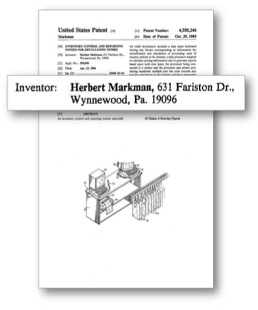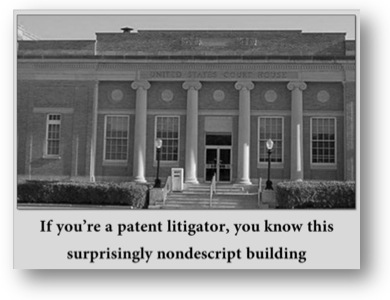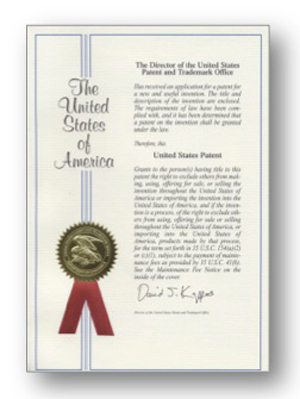by Ryan H. Flax, Esq.
(Former) Managing Director, Litigation Consulting
A2L Consulting
What’s the most important part of a patent litigation? Unless you’re a patent attorney, chances are you don’t really know.
Regardless of who you are or what you do, you probably understand that patent litigation is an extremely complex process – from beginning to end. What we patent attorneys know, and the answer to the question above, is that the pivotal point in every patent litigation is the claim construction hearing – called a Markman hearing by patent litigators.
Patent claim construction in Federal Court involves extensive briefing of opposing positions over the course of several weeks or months. In prelude to this briefing, each party will have likely put in thousands of hours in analyzing the patent claims at issue and developing their positions in view of infringement and validity concerns (if you’re the plaintiff, or non-infringement and invalidity concerns if you’re the defendant). The briefing culminates in a hearing before the court where the parties present oral argument in support of their claim construction positions – the Markman hearing.
 Here’s the famous (if largely unknown) patent that started it all. It’s a bit shocking to believe that one of the foundational underpinnings of patent law – that claim construction is an issue of law for the court – sprang from a patent covering the humble technology of dry cleaning tracking.
Here’s the famous (if largely unknown) patent that started it all. It’s a bit shocking to believe that one of the foundational underpinnings of patent law – that claim construction is an issue of law for the court – sprang from a patent covering the humble technology of dry cleaning tracking.
Patent claim construction by the court is so very important because it often determines the outcome of the case. If the claims are interpreted too broadly they may easily cover the accused infringing thing or method, but they will also be more exposed to invalidity attacks. On the flip side, if the claims are construed narrowly they may be somewhat immunized from invalidity, but may not read on whatever is accused of infringement. And, to add to the complex balancing act, each and every word of the patent claims is susceptible to interpretation by claim construction (although, typically, only some of the claim terms and phrases are at issue in any case) and any wrong turn can spell disaster for your case.
Jury consulting has been a staple tool for litigation teams seeking to gain an edge over their competition. Patent litigators, in particular, have been frequent mock jury users because of the typically high-stakes of patent cases. Less frequently (verging on never), however, do patent litigation teams utilize a mock Markman hearing. But, why?
We know that the Markman hearing and claim construction process is probably the most important part of a patent litigation, so why do patent litigation teams not use a mock Markman process to vet their claim construction positions prior to briefing and oral argument? Perhaps it’s the lack of a layperson-filled jury and the emphasis on patent law. Regardless of why, it’s a process that should be used and is now available to patent litigators through A2L.
 A2L provides a range of options for mock Markman hearing needs. The process can be somewhat informal, with counsel presenting oral argument and briefing on a few select claim terms for interpretation. Such a process can be “presided over” by our litigation consultants, including myself (I am a patent litigator with over 12 years experience and over $1 Billion in damages awarded to my clients). Or, the process can be highly formalized with full briefing and oral argument and participation of a panel of former federal judges. The level of formality depends on client preference, desired budget, and expected multiplicity of mock Markman hearings (you are not limited to just one). Regardless of format, you get a formal report and projected claim construction from an unbiased, disinterested observer upon which you can fine tune your case, tie up loose ends, prevent yourself from taking too broad or too narrow a claim construction position, and identify which claim terms to fight aggressively over and which to let go.
A2L provides a range of options for mock Markman hearing needs. The process can be somewhat informal, with counsel presenting oral argument and briefing on a few select claim terms for interpretation. Such a process can be “presided over” by our litigation consultants, including myself (I am a patent litigator with over 12 years experience and over $1 Billion in damages awarded to my clients). Or, the process can be highly formalized with full briefing and oral argument and participation of a panel of former federal judges. The level of formality depends on client preference, desired budget, and expected multiplicity of mock Markman hearings (you are not limited to just one). Regardless of format, you get a formal report and projected claim construction from an unbiased, disinterested observer upon which you can fine tune your case, tie up loose ends, prevent yourself from taking too broad or too narrow a claim construction position, and identify which claim terms to fight aggressively over and which to let go.
As a patent litigator, you should consider using a mock Markman process to gain an edge over your competition. Contact A2L when you’re ready.
More on A2L's site about patent litigation, claim construction and Markman hearings.






Leave a Comment